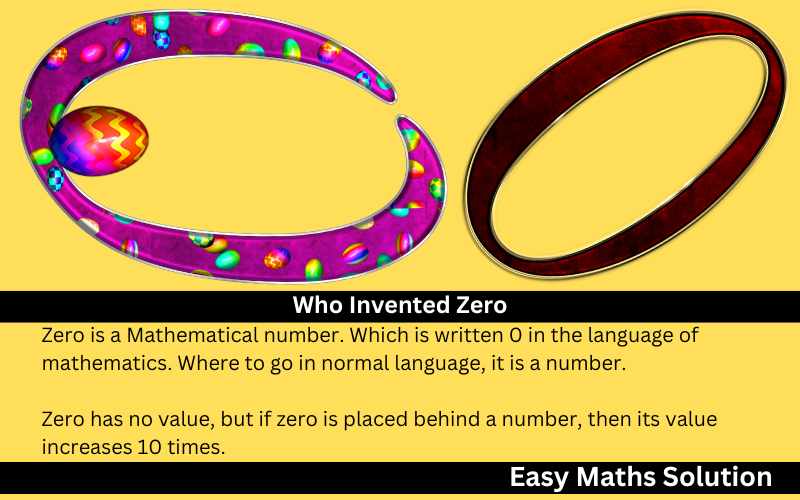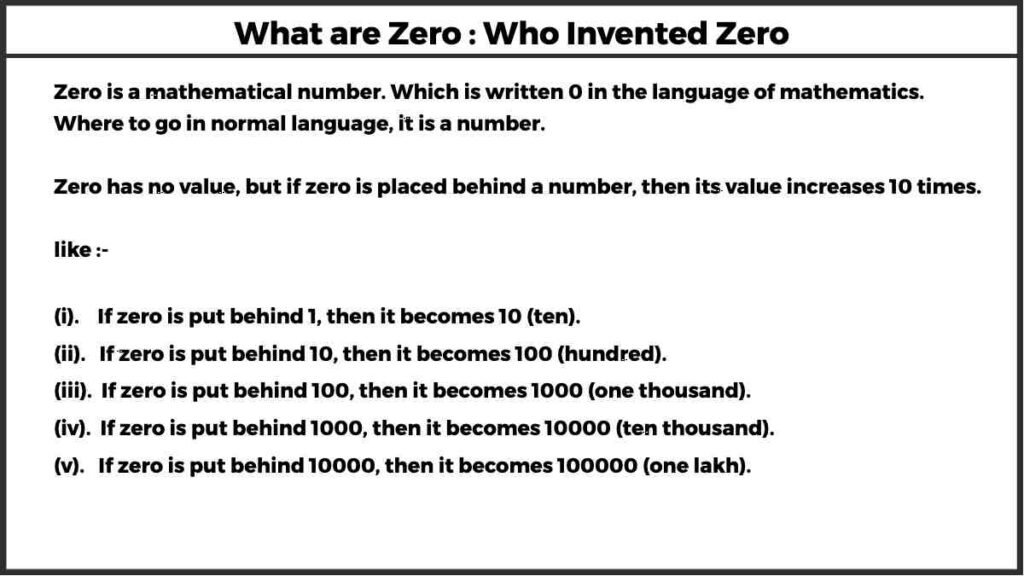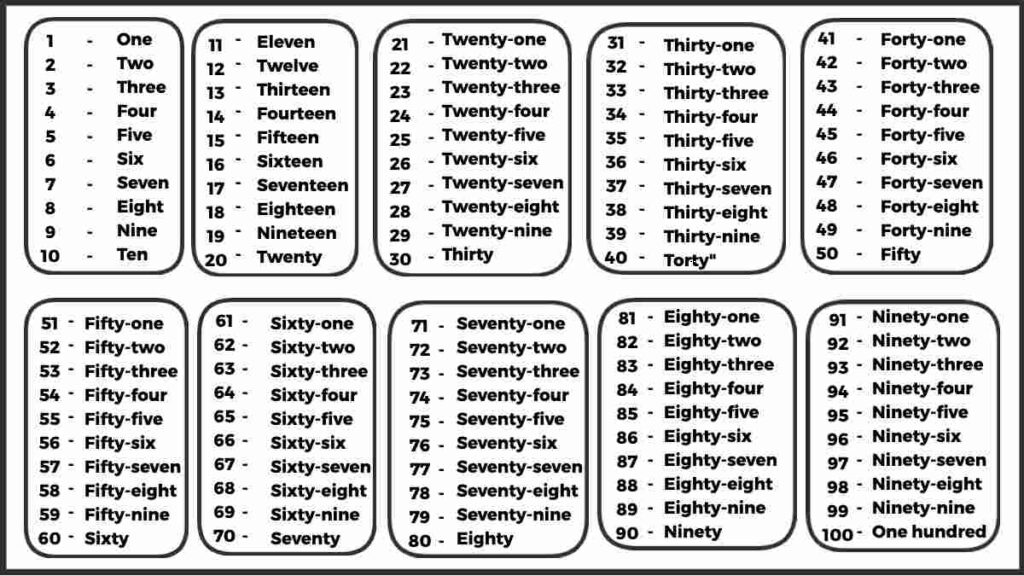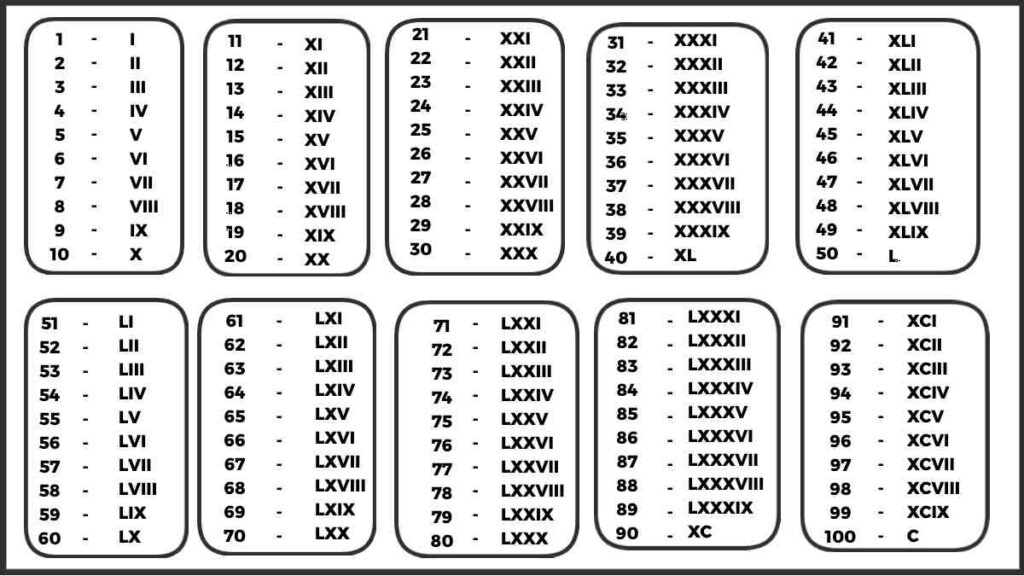As soon as there is talk of zero, many thoughts come in our mind like:- Who Invented Zero? Who invented 0? When was 0 invented? What is the history of 0? We will convey all the information to you through this post.
Zero’s contribution is in every field but 0 is considered to be one of the biggest inventions of mathematics. Think for once and see if 0 was not invented, how would mathematics be today.
Zero – Introduction
Have you ever wondered what the Definition of Zero is in Math?
0 is the Number that represents no amount or no objects. The numbers 1, 2, 3, and onwards are called Natural Numbers. 0 and the natural numbers together are called Whole Numbers. 0 is represented by the symbol “0.”
What are Zeros
Zero is a Mathematical number. Which is written 0 in the language of mathematics. Where to go in normal language, it is a number.
Zero has no value, but if zero is placed behind a number, then its value increases 10 times.

Who Invented Zero?
The concept of zero has not always been around, however, the introduction of zero brought a lot of changes not only in math but also in the general life of people.
Zero has so many different names, for example, ‘null’, ‘nil’, ‘0’ as a digit, ‘sunya’ in Sanskrit, and so on. It is fascinating how the origin of zero bought changed and now it is used as a prime digit in mathematics. Before learning about the modern zero, let’s learn about the origin of zero in India.
Examples :-
- If 0 is put behind 1, then it becomes 10 (ten).
- If 0 is put behind 10, then it becomes 100 (hundred).
- If 0 is put behind 100, then it becomes 1000 (one thousand).
- If 0 is put behind 1000, then it becomes 10000 (ten thousand).
- If 0 is put behind 10000, then it becomes 100000 (one lakh).
If you keep adding zeros like this, the number will also keep increasing.
But if zero is placed in front of a number, then its value remains the same.
Examples :-
- If we put 0 in front of 9, it will be 09.
- If we put 0 in front of 99, it will be 099.
That is, the value of the number will neither decrease nor increase, it will remain the same.
Adding zero to any Real Number gives the same number back.
Examples :-
- 9 + 0 = 9
- 10 + 0 = 10
- 99 + 0 = 99
- 1000 + 0 = 1000
On Subtraction of a real number, the same number is returned but on subtraction (0 – x) the sign changes.
Examples :-
- -9 – 0 = -9
- 10 – 0 = 10
- -99 – 0 = -99
- 1000 – 0 = 1000
Multiplying any real number by 0 gives 0. If zero is multiplied by any number, then only 0 comes.
Examples :-
- 9 × 0 = 0
- 99 × 0 = 0
- 999 × 0 = 0
- 9999 × 0 = 0
If 0 is divided by any number, the answer is infinity (∞).
Examples :-
- 9 ÷ 0 = ∞
- 100 ÷ 0 = ∞
- 999 ÷ 0 = ∞
- 1000 ÷ 0 = ∞
Zero serves as the additive identity of an integer, a real number, or any other algebraic structure in mathematics.
Zero is also called Naught (UK) and Naught (US) along with Zero in English.
In simple language 0 is the smallest number which is No-Negative number but it has no value.
Read More Maths Topics :
Hope you liked this article who invented 0, then share this article with your friends about who invented zero.
If you have any questions regarding this article, then do ask in the comments. Thank you.


